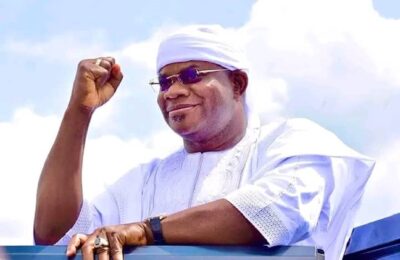Nigeria often wears the crown of being Africa’s apostolic face, a land whose pulpit resonance have reached far beyond its borders. From Lagos to London, from Abuja to Atlanta, Nigerian preachers, prophets, pastors, and apostles have carried their gospel fire, planting churches and reshaping spiritual landscapes. But beneath the applause lies a pressing question: how far has Nigeria gone in truly embodying this divine identity?
The story begins with the undeniable global spread of Nigerian Christianity. Redeemed Christian Church of God (RCCG) has parishes in over 190 countries. Winners’ Chapel runs universities and mega-sanctuaries. Dunamis International Gospel Centre by Dr Paul Enenche and The Synagogue, Church of All Nations (SCOAN), once led by Prophet T.B. Joshua, attracted millions of pilgrims from all continents. Mountain of Fire Ministries fills stadiums across Africa, while Apostolic and Pentecostal voices from Nigeria dominate international revival stages. This global footprint is the heavy point that makes many call Nigeria “the apostolic face of Africa.”
Yet, the picture is not flawless. Nigeria’s spiritual export has sometimes been overshadowed by scandals, theological disagreements, and the commercialization of the gospel. Critics argue that the same fire which blazed outward to the world has not always healed the internal wounds of poverty, corruption, and insecurity at home. As one Igbo proverb says, “He who carries a basket of water to quench another’s thirst must first check if his own house is not on fire.”
Still, Nigeria’s role in shaping modern African spirituality remains unmatched. The country’s pastors are often compared to revivalists of old—men and women like Ayo Babalola, who led the early Pentecostal wave, or contemporary figures such as Bishop David Oyedepo, Pastor E.A. Adeboye, and Dr. Paul Enenche, whose messages continue to blend faith with hope for a broken society. As Pastor Chris Oyakhilome once declared, “Nigeria’s destiny is tied to its calling to the nations.”
The tension, however, is clear. On one hand, Nigeria has given Africa a spiritual voice recognized on every continent. On the other, the moral and social contradictions within its own borders challenge the depth of that apostolic claim. Is Nigeria an apostolic giant abroad but a struggling witness at home?
What is certain is that the flame is alive. The Nigerian pulpit still sends ripples through the world, shaping how Africa is seen in matters of faith. But whether history will record Nigeria as the apostolic face of Africa fulfilled—or as an unfinished mission—depends on how well the nation turns its spiritual wealth into tangible transformation for its people.
– Inah Boniface Ocholi writes from Ayah – Igalamela/Odolu LGA, Kogi state.
08152094428 (SMS Only)




